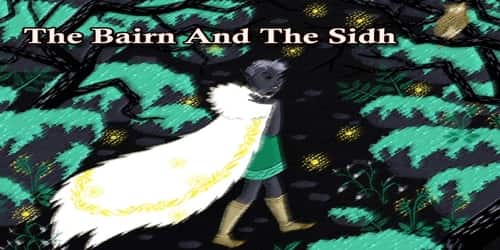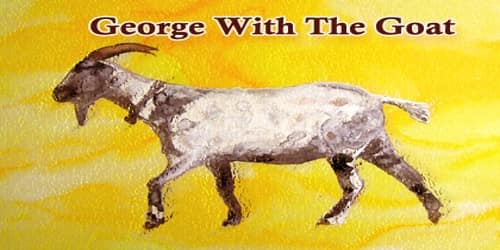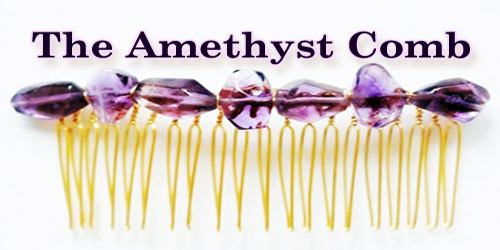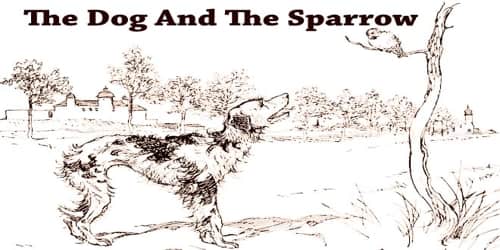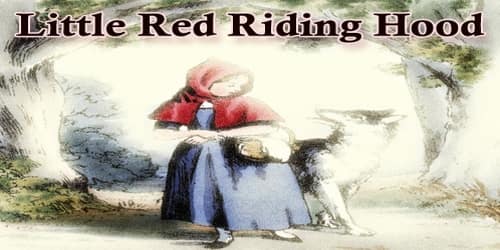Once upon a time lass walked on a path high above the swirling sea on a warm spring day. She carried her baby boy. Suddenly the child began to cry. “You’re thirsty, and I must find you some water,” the woman said. She carefully laid him on the heather and then went to fetch fresh water from a stream.
The moment she was out of sight, two fairy women appeared on the path. They were women of the Sidh, powerful fairies, tall and dark, with long, narrow ears pointed at the top, their eyes and brows set slantwise in their faces. The Sidh cannot make anything for them but must steal and beg all they own. And because they are vain and wish to own more than anyone else, they can be treacherous.
When they saw this child, the first woman smiled slyly. “What no one else claims is ours,” she said. The second woman picked him up and wrapped him beneath her shawl. Then they ran away.
When the mother returned to the spot and saw that her child was gone, she cried desperately. “Where has my wee bairn gone?” But she wept to the empty moors, and her voice echoed back at her.
Desperately she ran from village to village, asking everyone she met if they had seen a wee lost bairn. “No,” people said, “but rest a while, lass,” for the woman had grown weak and weary, and everyone could see she needed food and rest.
“I will not stop until I have found my bairn,” she said, refusing all comforts.
At last, she came to a gypsy camp and went to see the old gypsy grandmother. People said she knew all there was to know in the world.
“Help me,” said the lass. “I must find my lost boy.”
“Sit down,” said the old woman, “and give me your hand.” With that, she reached into a basket and tossed some herbs on the fire. The flames leaped up and smoke rose into the sky. “Your child,” said the woman sadly, “has been stolen by the Sidh. They have taken him to the Sidhean, the secret fairy mound beneath the earth. Any mortal who goes there never leaves. You must give up your search.”
“Never,” cried the lass. “Please, can you put a curse on the Sidh?”
“My wisdom is as old as these moors,” said the gypsy woman, “but the wisdom of the Sidh is older than the beginning of the world. No spell of mine could help you to overpower them, but I think I can help you a little.” And she whispered her plan to the lass.
“Wait until the day when the Sidh gathers at the Sidhean. They will choose a new ruler that day, someone to rule over them for 100 years. If you find a way to get into the Sidhean, you may win back your bairn,” the gypsy woman told the lass, and with that she blessed her. “Remember, they want to own all that is rare and wonderful.”
What could that be? The lass wondered, but then she remembered people speaking of the white cloak and the golden stringed harp of the gods, the most wondrous treasures in the entire world.
Once again the lass made her way to the sea. On the sharp, rocky coastline, she gathered down from eider ducks, and the spell of the gypsy woman protected her from drowning and harm. When she had gathered all she could, she wove a cloak as soft and white as a cloud, bordered with golden flowers. Then she laid the cloak beneath a mat of gorse and went hunting again.
At the seaside, she found the bones of a sea animal bleached by the sun and smoothed by the tides, as beautiful as ivory. These she bent and bound until she had made a frame for a harp, and this she strung with strands of her own golden hair. She stretched the strings tightly and played the harp, and the sound was so sweet, the birds gathered around her and sang.
“I am ready,” she told the birds. She tossed her cloak over her shoulders, took her harp and set off for the Sidhean, traveling by moonlight. Once there she hid in a thicket at the foot of the Sidhean and watched as the Sidh walked past, entering their private world.
When the last Sidh walked by, the lass spread her cloak and stepped out of the thicket. “You are not one of us,” shrieked the fairy. “Mortals may not gather at the Sidhean.”
But when the fairy woman saw the cloak, she grew greedy. “What will you take for your cloak?” she asked.
“Not for sale,” said the lass, swirling it so that it shimmered and shone.
“You may have all the gold you want.”
“Gold will not buy my cloak,” the lass said, “but it has a price. Take me into the Sidhean.”
Quivering with excitement, the fairy caught her hand and hurried her into the Sidhean.
When the people of the Sidh saw a mortal among them, they rushed at her, but the fairy with the cloak protected her. “The lass wants to see our king.”
The king, bold and handsome, sat upon his throne. The lass began to play her harp, and the Sidh gathered around, entranced by the beautiful sound.
“Give me your harp,” said the king.
“This mine,” said the lass, “but it has a price.”
“What is your price?”
“My bairn,” she said, “and nothing else.”
So it was that the king, longing to own the harp, sent for the child. The king took him in his arms and said, “Give me the harp.”
“The baby first,” the lass cried, and the king knew that this woman loved her child so deeply, she would never give up her harp until she held her child. He handed him to her.
When the child was in her arms once more, the lass wept with joy.
The king began to play the harp. The music was so beautiful, the Sidh were soon spellbound, so caught up in the music they never noticed the lass and her child walk out of the Sidhean.
Never again did the lass leave her child. She knew she had the most precious gift in the world, more precious than anything the Sidh would ever own.
